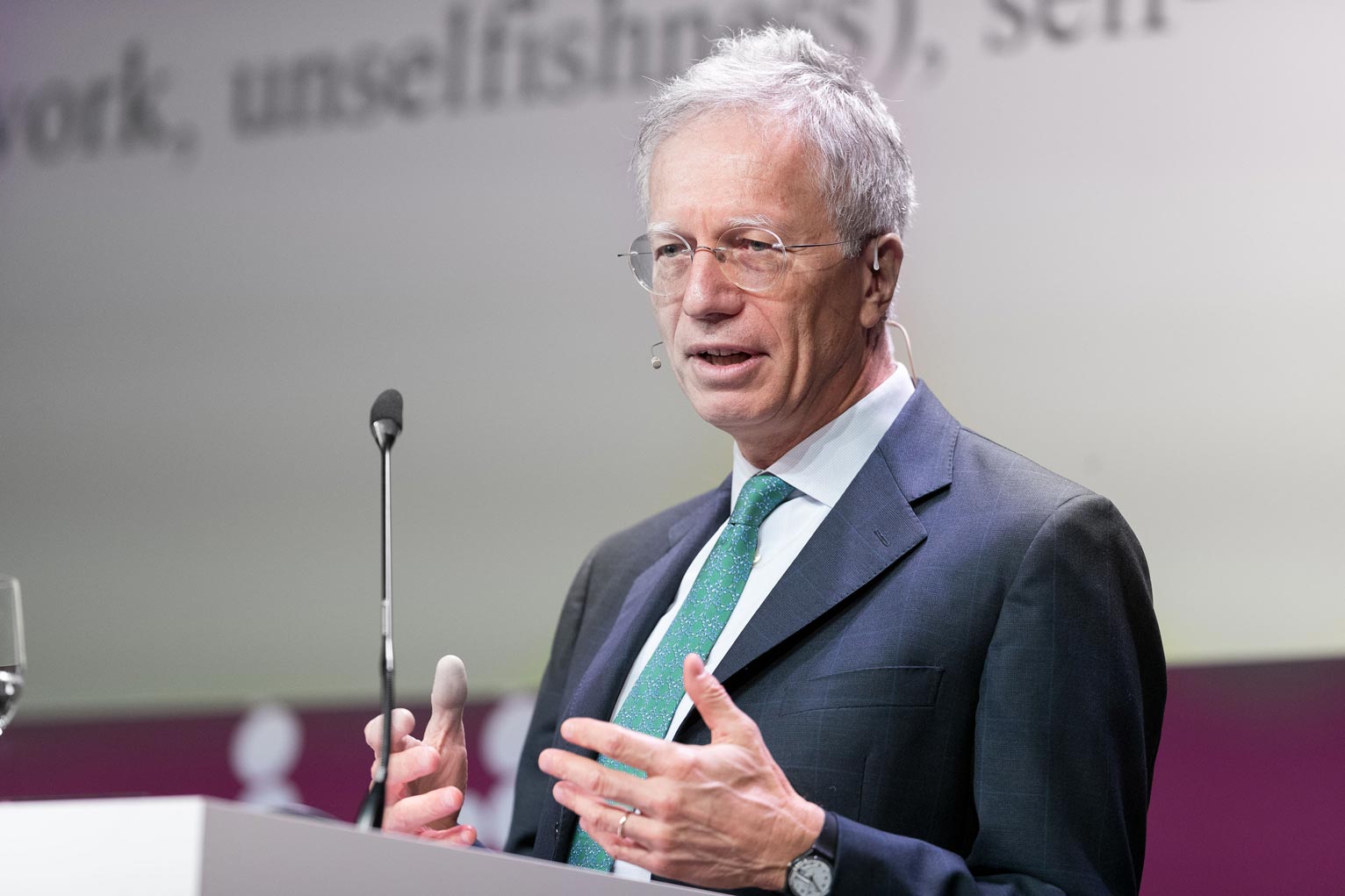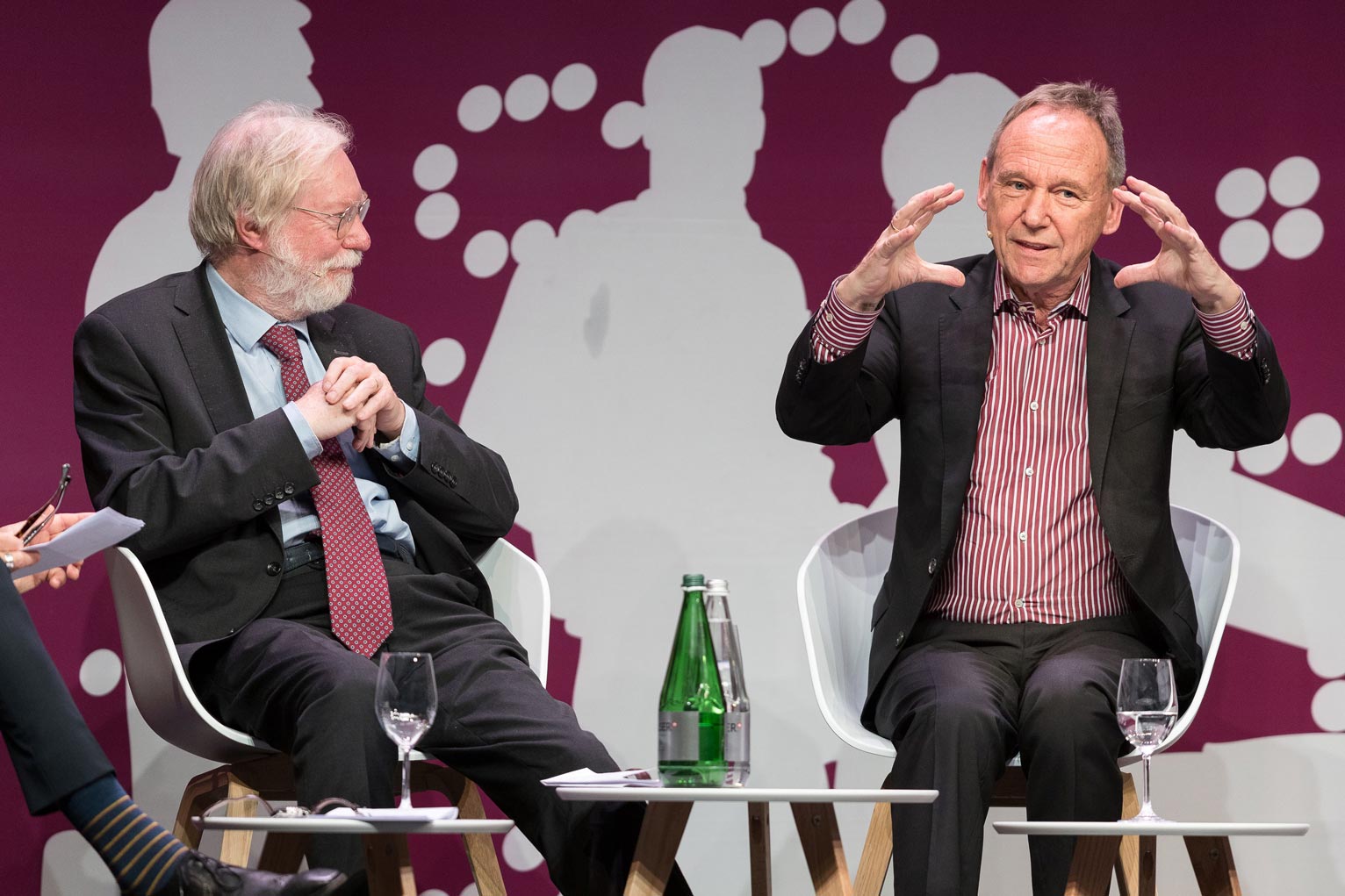Is culture key?
Culture and economics
Culture and economics are closely interlinked: a country’s economic success depends on the quality of its culture. This insight is not new, yet, it has long been ignored. It has returned, however, to the center of economists’ attention, as an event by the UBS Center showed in November.
by Kim Rechsteiner
“Does Europe belong together at all?”, asked Guido Tabellini, Professor of Economics at Bocconi University, in his keynote, opening the conference with impressive results from his comparative research. The European countries are not as different as one might think. On the contrary, there is much less cultural heterogeneity between them than within national borders. Yet, it is largely unclear where these differences come from, said Tabellini. Only a small part of it can be explained by socio-economic and geographical distance. Future developments do not point to more cultural convergence either; cultural differences are in effect increasing. However, this does not mean that the countries of the European Union are moving in different directions, Tabellini explained. Rather, they move in similar directions, but at different speeds. He therefore does not see cultural heterogeneity as an obstacle for political integration, and clearly affirmed the question he asked at the beginning, saying, “Yes, Europe belongs together.”
How do cultural preferences influence the economy?
Culture as the interplay of shared attitudes, values, beliefs and behaviors can be viewed from many angles. For example, Armin Falk (University of Bonn) examines cultural preferences that are central to business, such as willingness to take risks, patience, altruism, and trust. Like Guido Tabellini’s research, Falk’s work shows a smaller variance in preferences between the countries studied and a much larger variance within national borders.
Alessandra Fogli (Federal Reserve Bank of Minneapolis) also finds culturally induced differences in economic activity – she illustrated this in her lecture using the example of female labor force participation in different countries. Cultures which define women as active work force participants show higher employment rates for women. Following this thought, Falk explained that gender differences exist everywhere. After that, the audience was challenged to answer the question if gender differences will increase or decrease depending on whether a country is richer and more developed. The majority decided to answer that the differences would decrease. The facts Armin Falk presented surprised: the higher the GDP per capita in a country, the greater the variance in cultural preferences between women and men. He added that the variance in cultural preferences also increases with more gender equality in a country.
Chilean congressman Felipe Kast Sommerhoff also addressed the topic of gender equality. With his presentation, he drew attention to the political side of culture. According to Kast Sommerhoff, Chile is one of the most conservative countries in the world, lagging far behind when it comes to gender equality. His goal is to put the issue on the political agenda. However, culture is not fixed, and changing stalled practices is imperative. Although culture is an inert mass, it is still shapeable. For example, new technology with its networks makes an important contribution toward changing culture.
Attitudes, values, and corporate success
In the afternoon, the focus shifted to the direct connection between culture and corporate success. Ernst Fehr (University of Zurich) and Raffaella Sadun (Harvard Business School) independently presented various studies that clearly prove that corporate culture is an essential factor for companies’ success. While Sadun referred to a large-scale international study with managers, Fehr presented results from experimental behavioral research. In addition, IKEA Switzerland CEO Simona Scarpaleggia underlined the importance of values and culture for a successful international company. People want to work for a company that shares their vision and values, said Scarpaleggia.
Attitudes and values were also the subject of the subsequent debate between Sir Paul Collier (Oxford) and journalist Alan Posener (Die Welt), who discussed the cultural foundations for a prosperous society. At the center of the discussion stood old and new divides that stress the core of established and well-functioning societies – i.e. values and a shared cultural identity. The divides run along different lines, such as poverty, education, origin, or culture. Collier and Posener agree that these divides are mainly responsible for the disintegration of common identity within Western culture.
Westerners are WEIRD people
Joe Henrich, Professor of Human Evolutionary Biology at the University of Harvard, presented a further perspective on culture and on how it develops. He pointed out that “WEIRD people” – white, educated, industrialized, rich, and democratic – are different from all other people and took the audience far back in time to late antiquity. The foundation stone for the development path of “WEIRD people” was then laid, explained Henrich. With the establishment of the Roman Catholic Church, complex family structures were destroyed and clans were no longer tolerated. From this developed around the year 1000 what Joe Henrich calls “voluntary organizations”: cities, universities, and monasteries. The keyword “voluntary organizations” is important, because once people could make their decisions freely and without the influence of complex kinship structures, individualism developed – a core element of Western culture.
Finally, Henrich emphasized the importance of culture for the formation of institutions, thus making it clear that institutions are always culturally bound and therefore cannot simply be transferred. This in turn has far-reaching consequences for international organizations and companies. With this in mind, the take-home for the day was clear: Culture is an essential factor that permeates our lives in all areas – including business.
Culture and economics are closely interlinked: a country’s economic success depends on the quality of its culture. This insight is not new, yet, it has long been ignored. It has returned, however, to the center of economists’ attention, as an event by the UBS Center showed in November.
by Kim Rechsteiner
“Does Europe belong together at all?”, asked Guido Tabellini, Professor of Economics at Bocconi University, in his keynote, opening the conference with impressive results from his comparative research. The European countries are not as different as one might think. On the contrary, there is much less cultural heterogeneity between them than within national borders. Yet, it is largely unclear where these differences come from, said Tabellini. Only a small part of it can be explained by socio-economic and geographical distance. Future developments do not point to more cultural convergence either; cultural differences are in effect increasing. However, this does not mean that the countries of the European Union are moving in different directions, Tabellini explained. Rather, they move in similar directions, but at different speeds. He therefore does not see cultural heterogeneity as an obstacle for political integration, and clearly affirmed the question he asked at the beginning, saying, “Yes, Europe belongs together.”




